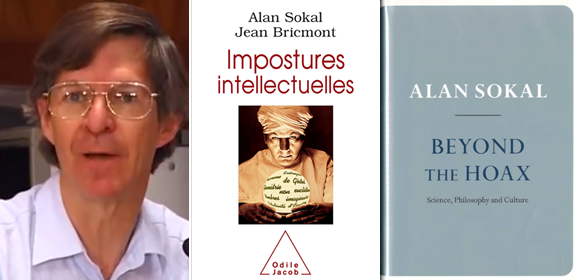 The IndoEuropean root WED, with its o-grade form WOD, meant to speak. Hence the Greek word for a song or lyric poem, an ode, ᾠδή, and derivatives such as odeon, epode, hymnody, melody and melodeon, monody, palinode, prosody, psalmody, rhapsody, threnody, comedy, and tragedy. A parody is “a literary composition modelled on and imitating another work, esp. a composition in which the characteristic style and themes of a particular author or genre are satirized by being applied to inappropriate or unlikely subjects, or are otherwise exaggerated for comic effect” (OED). The word comes from the Greek παρῳδία, a burlesque.
The IndoEuropean root WED, with its o-grade form WOD, meant to speak. Hence the Greek word for a song or lyric poem, an ode, ᾠδή, and derivatives such as odeon, epode, hymnody, melody and melodeon, monody, palinode, prosody, psalmody, rhapsody, threnody, comedy, and tragedy. A parody is “a literary composition modelled on and imitating another work, esp. a composition in which the characteristic style and themes of a particular author or genre are satirized by being applied to inappropriate or unlikely subjects, or are otherwise exaggerated for comic effect” (OED). The word comes from the Greek παρῳδία, a burlesque.
Last week I described Paul Jennings’s parody of Jean-Paul Sartre and other philosophers, in his “Report on Resistentialism”, a description of the malignity of inanimate objects—“les choses sont contre nous”. I suggested that it had in one sense failed, being comprehensible, in contrast to the prose of some of the philosophers Jennings was parodying. Later parodists have targeted a form of post-resistentialism: quelques philosophes sont contre nous.
In 1996, the physicist Alan Sokal wrote a paper titled “Transgressing the Boundaries: Toward a Transformative Hermeneutics of Quantum Gravity”. In it he claimed that quantum gravity is a social construct with profound political implications. It was written in the incomprehensible jargon of relativistic postmodernism and was accepted for publication by the cultural studies journal Social Text. Sokal then reported, in the now defunct magazine Lingua Franca, that his article was a nonsensical parody, and reports on the front page of The New York Times and elsewhere guaranteed its notoriety. The editors of Social Text published an apologia and Sokal replied. Sokal later published Impostures intellectuelles (with Jean Bricmont; English translation Fashionable Nonsense) and Beyond the Hoax, which included his original article, with numerous annotations and discussion of its implications (pictures).
A large literature has proceeded from Sokal’s hoax. His lectures on the subject have included the 2008 Annual Sense About Science Lecture, given in UCL’s Cruciform Lecture Theatre and reprised in 2009 to the Swedish Humanist Society and the Academy of Sciences in Stockholm. Sokal defined “science” as “ . . . a world view giving primacy to reason and observation and a methodology aimed at acquiring accurate knowledge of the natural and social world. This methodology is characterized above all else by the critical spirit that is the commitment to the incessant testing of assertions through observations and or experiments, the more stringent the tests the better, and to revising or discarding those theories that fail the test.” He also stressed that his use of the word science “is not limited to the natural sciences, such as physics, chemistry, biology, and so on, but includes investigations aimed at acquiring accurate knowledge of factual matters relating to any aspect of the world by using rational empirical methods analogous to those employed in the natural sciences [limited] to questions of fact [and] excluding questions of ethics, aesthetics, ultimate purpose, and so forth.”
Sokal also described scientific interconnectedness: “ . . . well-tested theories in the mature sciences are supported in general by a powerful web of interlocking evidence coming from a variety of sources; only rarely does everything rest on one crucial experiment . . . science tends to link these theories into a unified framework . . . biology has to be compatible with chemistry and chemistry with physics.” I shall discuss interconnectedness next week.
In 2017 James Lindsay and Peter Boghossian, who has written about Sokal, pseudonymously parodied gender studies in a paper titled “The Conceptual Penis as a Social Construct”, arguing “that penises shouldn’t be thought of as male genital organs but as damaging social constructions” and that “climate change is ‘conceptually’ caused by penises.” They outed themselves in Skeptic when the paper was published in the journal Cogent Social Sciences; it was later unilaterally retracted by the journal.
The penis parody, and Sokal’s criticism of postmodernist philosophers of largely, but not exclusively, French origin, such as Lacan, Irigaray, and Latour, do not prove that their texts are, in Sokal’s words, “self-indulgent nonsense”, although that’s how they read, but they do show that they include people who don’t know gobbledygook when they see it, especially when it seems to support their own politicised view of the world. In short, non-science.
Jeffrey Aronson is a clinical pharmacologist, working in the Centre for Evidence Based Medicine in Oxford’s Nuffield Department of Primary Care Health Sciences. He is also president emeritus of the British Pharmacological Society.
Competing interests: None declared.

